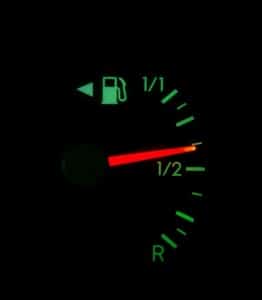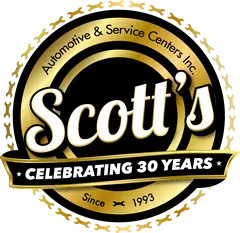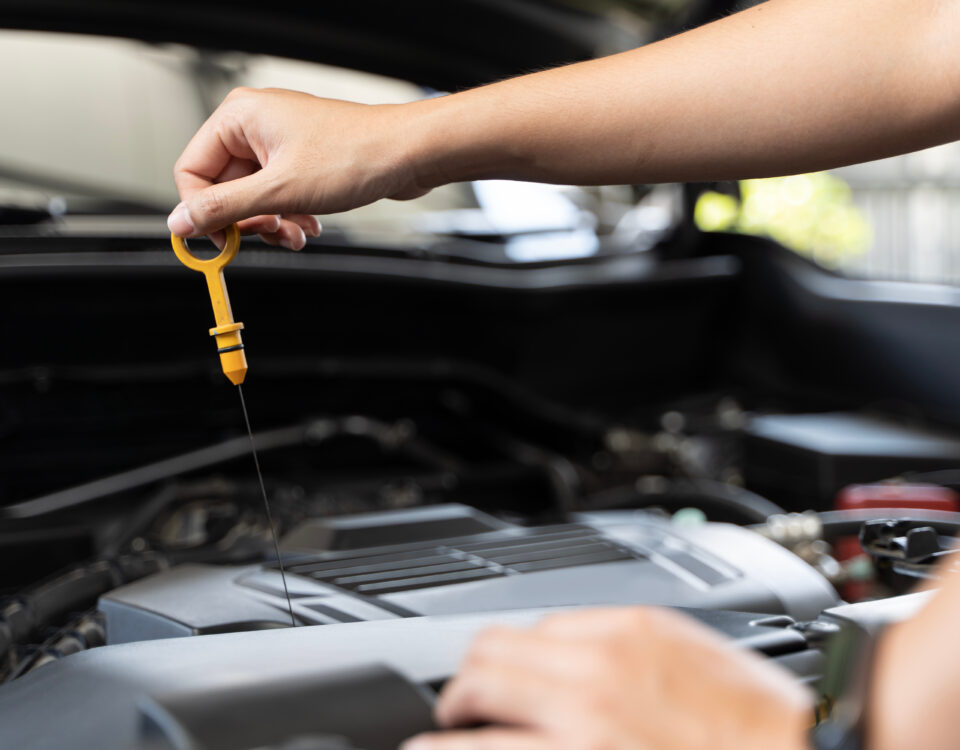How to Troubleshoot a Car that Won’t Start
February 2, 20177 Safety Supplies to Always Keep in Your Car
February 16, 2017
More on the 54.5 mpg Standard
As you can imagine, it’s easier for a compact car to achieve higher gas mileage than a pickup truck. That’s why the 54.5 mpg standard is actually an average goal encompassing the entire passenger vehicle market. Actual numbers vary by manufacturer, vehicle type, and expected yearly sales, among other factors. For instance, the target fuel economy for a pickup truck might be closer to 33 mpg, while a sporty coupe could be expected to achieve 61 mpg.
Vehicle manufacturers have other ways of satisfying the EPA besides reaching lofty fuel economy goals. Improved air conditioning technology to reduce emissions and hybrid engines in pickup trucks are just two examples.
What Role Electric and Hybrid Vehicles Play
Speaking of hybrids, this may seem like the way for manufacturers to meet updated fuel economy standards by 2025. However, only 4 million US drivers own hybrid vehicles out of 253 million cars and trucks on US roads.
Besides pursuing green vehicle technology, many automakers are combining more efficient internal combustion engines with other improvements, such as lightweight frames that automatically boost fuel economy by 10 percent. In an industry where safety, comfort, and performance are all top priorities, fuel efficiency is sometimes forced to take a backseat.
Will the EPA’s Standards Even Go into Effect?
With the recent administration change and new EPA leadership, these standards might not even take effect, or they may feature reduced targets. The EPA is required to finalize vehicle emissions goals by April 2018. Only then will we know what standards automakers will be held to once 2025 rolls around.
Why Fuel Efficiency is Important
Regardless of political agendas and federal energy policies, everyone should have a goal to improve their vehicle’s fuel efficiency and shop for cars with high mpg ratings. Here are a few reasons why:
- Saving fuel saves you money: The first motivation to cut down on gas consumption is simple – the less you consume, the less you have to buy. Purchasing a fuel-efficient vehicle can pay you back in gas savings, especially if you commute a long distance every day.
- Conserving gasoline increases your sustainability efforts: As a non-renewable resource, the earth has a limited supply of oil and gasoline. Everyone should use it wisely until alternative fuel technologies are perfected.
- Consuming less gas reduces emissions: Cleaner air reduces smog and pollution that can cause respiratory problems. If everyone drove cleaner vehicles, we could all breathe a little easier.
- Lowering gas consumption decreases our dependence on foreign oil: This is a positive thing, whether your goal is to avoid sticker shock at the pump or help our country gain energy independence.
Maximize Fuel Efficiency with Regular Vehicle Maintenance
Regardless of what ends up happening with the EPA’s gas mileage standards, our goal here at Scott’s Fort Collins Auto is to help you get the most out of your car today. Whether you lease your vehicle and plan to trade it in soon, or you want your car to last for many years to come, routine maintenance is the key to maximizing fuel efficiency.
Our team of experienced mechanics will have your car in and out in no time. Schedule an appointment online or call us at (970) 682-4202 the next time you need maintenance.



